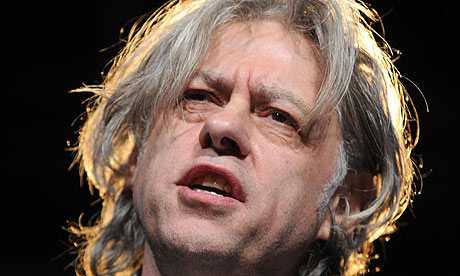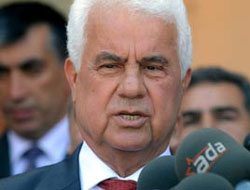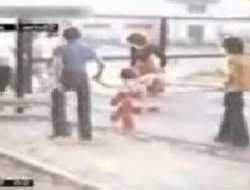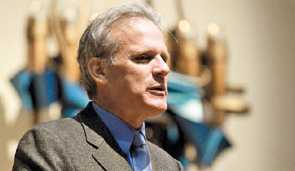Viet Nam News spoke with Turkish Ambassador Ates Oktem on the occasion of his country’s national day today.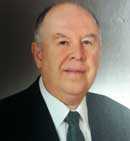
Viet Nam and Turkey are aiming to achieve a two-way trade turnover of US$1 billion in 2010. In the first eight months of this year, it was about $400 million – a major increase as from the same period last year. Do you think the two countries will be able to achieve this year’s trade target?
In spite of the global economic crisis, the volume of trade between Turkey and Viet Nam is promising to reach $1 billion in 2010.
The Governments of Turkey and Viet Nam have been encouraging and facilitating economic and trade relations and co-operation by creating the necessary legal framework and infrastructure. Turkish and Vietnamese businessmen are looking to develop economic and commercial relations.
The Agreement on the Reciprocal Promotion and Protection of Investment and the Agreement on Avoidance of Double Taxation between Turkey and Viet Nam are in their concluding phase. These agreements will serve to create a secure business environment for our private sectors. Both sides want to hold joint economic and trade committee meetings. Business forums held in Istanbul in November 2008 and Ha Noi in October 2009 were successful. Businessmen from both sides had the opportunity to exchange views on issues of mutual interest. Meanwhile, the Joint Business Council will serve as a permanent consultation mechanism between the private sectors. It comes under the auspices of the Turkish Union of Chambers of Commerce and Commodity Exchanges and the Viet Nam Chamber of Commerce and Industry, and will contribute to strengthening commercial relations. These positive developments in recent years have given impetus to our economic and commercial relations.
Efforts have been made to promote co-operation between Turkish and Vietnamese business communities by encouraging greater participation in activities such as trade fairs, conferences, seminars and workshops in high-priority sectors such as textiles, machinery and food. That, in conjunction with greater contact and dialogue between businesses and industry on both sides, leads us to believe we will achieve a bilateral trade volume of $1 billion either in 2010 or 2011.
Turkish Airlines plans to begin flying between Istanbul and HCM City by the end of 2010. How will this benefit the two countries?
Turkish Airlines will launch its flights from Istanbul to HCM City as from December 29, 2010, within the framework of the Bilateral Air Services Agreement Between the Government of the Republic of Turkey and the Government of the Socialist Republic of Viet Nam for Scheduled Air Services Between Their Territories and Beyond. That agreement and a memorandum of understanding was signed by the General Directorate of Civil Aviation of Turkey and the Civil Aviation Administration of Viet Nam on March 17, 2009.
Turkey, because of her geographic location and close historical and cultural ties across a vast landscape, will serve as a crucial bridge for dialogue and interaction between civilisations at the heart of Eurasia. It will serve as a bridge between Viet Nam, Europe, the Middle East and the Caucasus.
Viet Nam is pushing ahead with its renewal cause in order to actively participate in the development of ever closer economic relations within ASEAN. It is also striving to promote economic interactions between ASEAN and its partners throughout the world. Viet Nam is an ideal bridge for Turkey to link with other Southeast Asian countries.
Flights by Turkish Airlines between Istanbul and HCM City will help Turkish and Vietnamese businessmen interact, as well as tourists travel between the two countries. These flights will pave the way for developing and strengthening our bilateral economic, commercial and cultural relations.
Turkey actively sends workers overseas as part of its economic development plan. Viet Nam has a similar policy. How successful has your programme been?
The emigration of Turkish citizens to Western Europe to compensate for a labour shortage started in the early 1960s. Turkey signed Labour Force Agreements with Germany in 1961; Austria, Belgium and the Netherlands in 1964; France in 1965 and Australia in 1967. The immigration of Turkish labourers into Western Europe continued until 1974. From this date onwards, Turkish labourers began to focus on North Africa, the Middle East and the Gulf countries. Following the disintegration of the Union of Soviet Socialist Republics, the labour force was directed towards the Russian Federation. This transformation helped to open up the Turkish economy to the world and benefited Turkish contractors undertaking infrastructure projects in the region.
From the 1970s onwards, Turkish immigrants in Western Europe began to think of their move as permanent rather than temporary. Today, the majority of Turks living abroad, a considerable number of whom have obtained citizenship in their destination countries, are permanent residents.
Today, approximately 5 million Turkish citizens live abroad, of which about 4 million reside in EU countries, 300,000 in Northern America, 150,000 in Australia and 200,000 in the Middle East.
Turkish immigrants have contributed significantly to the Turkish economy as well as to the economic development of the immigration countries. Most of them also contribute to their destination countries’ political, social, cultural and economic life, not only as blue-collar labourers but also as professionals in many areas, such as academics, scientists, doctors, journalists, engineers, lawyers, entrepreneurs, artisans, politicians, athletes, etc. Numerous Turkish migrant workers have left their labourer identity behind and have established their own business. The number of companies established by Turkish businessmen in Western Europe has risen to approximately 140,000, 70,000 of them in Germany alone. These enterprises are providing jobs for 640,000 employees (330,000 in Germany). Their total annual turnover exceeds 50 billion euros – 32.7 billion euros in Germany alone. According to the latest statistics, the annual expenditure of Turks living in Western Europe amounts to 22.7 billion euros.
Turkey welcomes the active participation of its citizens in the social, economical, cultural and political life of the immigration countries while maintaining ties with their motherland, original culture and mother-tongue.
In June, Viet Nam and Iraq officially joined the Conference on Interaction and Confidence-Building Measures in Asia (CICA), which is chaired by Turkey. How will Viet Nam’s membership of CICA benefit these countries and the organisation itself?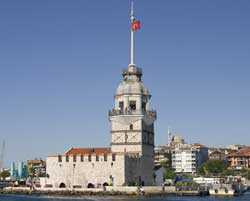
CICA member states desire to establish a firm foundation for common action to promote co-operation in the CICA region in the spirit of equality and partnership, and thereby contribute towards peace, progress and prosperity in Asia. CICA member states are determined to create an environment of comprehensive and indivisible security in Asia, where all states co-exist peacefully and their peoples live in peace, freedom and prosperity.
Viet Nam’s membership of CICA will help its development efforts, particularly as the country is also an active member of ASEAN and fully supportive of common efforts to strengthen and boost co-operation and dialogue between Asia and Europe.
On the other hand, Viet Nam will benefit from co-operation within the framework of CICA, which is a multilateral forum for close ties, political dialogue and interaction, comprehensive consultation and decision making based on consensus.
Could you briefly describe to our readers some of Turkey’s main attractions – cultural and work-wise?
Turkey’s tourism industry has grown rapidly since 1980. The number of tourists visiting Turkey in 1980 was close to 1.5 million. This figure went up to 26.5 million in 2008. Meanwhile, tourism revenue in 1980 was $326 million, in 2008 it was $21.91 billion.
Istanbul, which was the capital city of the Ottoman Empire, has become a modern city, while preserving its magnificence and history. Visitors are fascinated by Istanbul’s history and culture – its museums, palaces, mosques, churches, bazaars and natural attractions.
The Cappadocian region is renowned for its beauty and history. Early settlers inhabited the rock formations known evocatively as Peri Bacalari Chimneys. They carved out houses and churches inside these formations and adorned them with frescos, which carry the traces of the thousands of years of civilisation.
If someone said the most scenic vistas in Anatolia could be found on the coast of the Aegean, he would not be exaggerating. The bays and peninsulas, coves and golden beaches stretch the length of the beautiful coastline. At almost every turn, you will encounter theatres, temples and agoras (open places of assembly) in the ancient cities of Bodrum, Fethiye, Marmaris, Kusadasi. — VNS
Vietnam News


